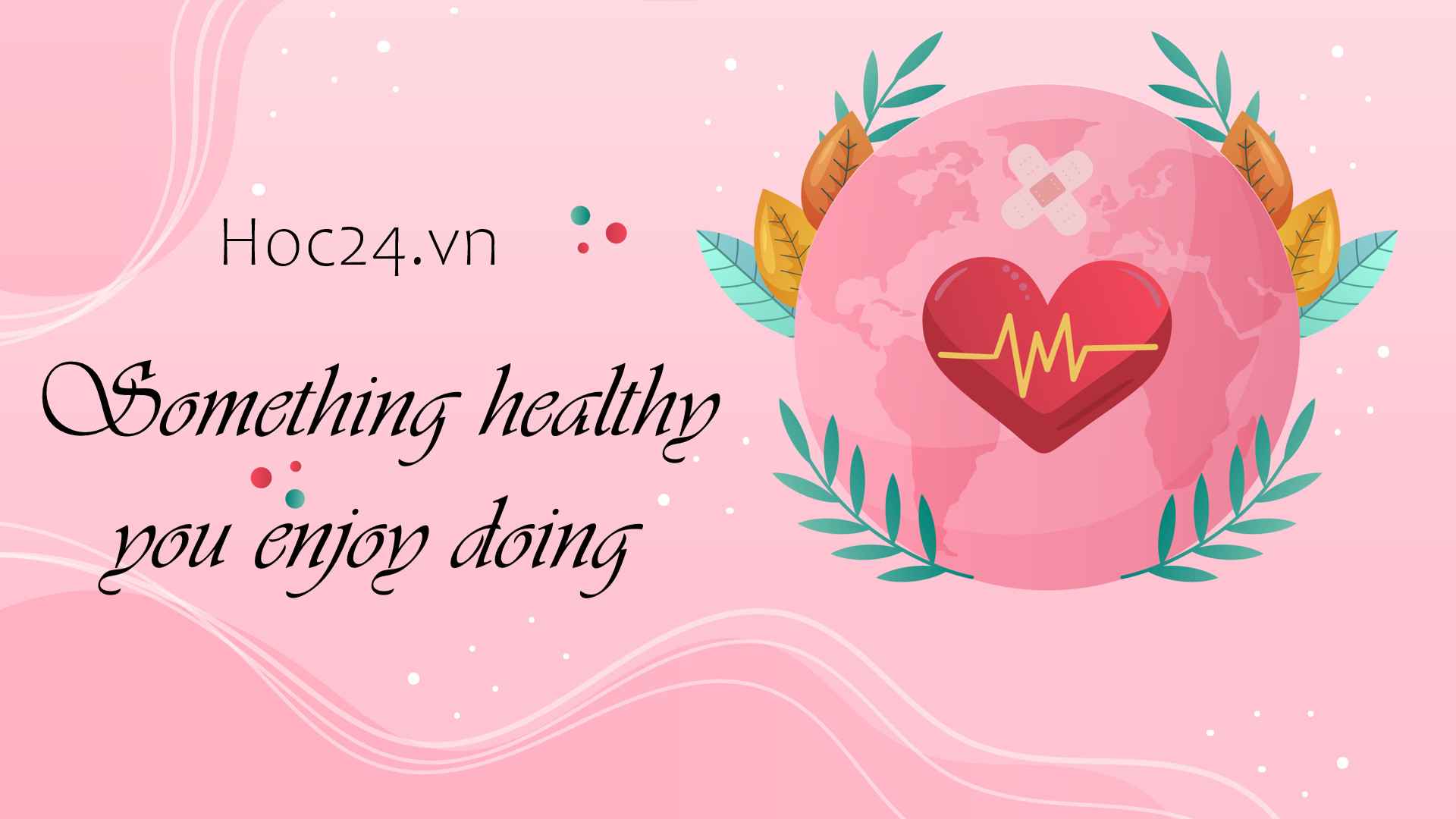Describe something you are very good (or very bad) at doing - What is that? - How did you learn to do it? - How do you feel when you do it? - And explain why you think you are good at this?
Hãy nhập câu hỏi của bạn vào đây, nếu là tài khoản VIP, bạn sẽ được ưu tiên trả lời.


`\text{I would like to share with you something that I am keen on doing in my leisure time to stay healthy, which is jogging.}`
`\text{I took up this habit about 2 years ago. At that time, I was up to my ears with study to prepare for my graduation examination so I was a little bit stressed out. Then I thought that I needed to do something energetic to release some stress, so I decided to have a crack at jogging.}`
`\text{At first, doing this was quite challenging for me because I led a sedentary lifestyle. I just sat in front of my computer every day to complete my assignments. But after a few days of suffering from muscle aches, I got used to jogging and kept doing it in the evenings.}`
`\text{Well, I have to say that this sport has helped me a lot in strengthening my physical health as well as my mental health. Thanks to jogging, I was able to lose my fat belly and get lean. Now, to be honest, I’m quite satisfied with my youthful appearance and trying to maintain it. Also, jogging allows me to unwind and enjoy fresh air, and whenever I go jogging I feel like my mind is being refreshed.}`
`\text{In the future, I am going to keep doing this to stay healthy and maybe I will try some other sports too. That’s all!}`
- Activity is physical movement
-When I do it, I think it helps my body get better
-I do it 10 times in a day.The activity helps me to strengthen the muscles that relax,Therefore, it is better for us to train our own body than to go for plastic surgery or reduce body fat.
Tự viết hoàn toàn nha cô.

- That's reading stories.
- You first started doing it when I was 6 years old.
- I like doing it because it helps me relieve stress.
- I think I will continue to do it for another 5 years.

Đáp án A.
Ý chính của đoạn văn là gì?
A. People have short-term and long-term memories and how they can learn to improve their memory: con người có trí nhớ tạm thời và trí nhớ dài hạn và cách mà họ có thể học để cải thiện khả năng ghi nhớ.
B. How acronyms help people remember better: làm thế nào mà những từ viết tắt có thế khiến con người ta nhớ tốt hơn.
C. What you should do when you forget a phone number: bạn nên làm gì khi quên mất một số điện thoại.
D. The main reasons for forgetting things: những lí do chính cho việc lãng quên.
Đáp án là A, dẫn chứng ở đoạn đầu và đoạn sau của đoạn văn: Có nhắc đến trí nhớ ngắn hạn, trí nhớ dài hạn và liệt kê một loạt những cách để cải thiện trí nhớ.

Đáp án A
Tên gọi của Ngũ Đại Hồ ở Bắc Mĩ dễ nhớ______.
A. nhờ vào từ viết tắt hữu ích “homes” .
B. khi chúng liên quan tới bức tranh tinh thần gia đình của bạn.
C. nếu chúng ở gần nhà bạn.
D. bởi vì chúng gợi nhớ bạn về gia đình của mình.
Dẫn chứng ở tip 8:“8. […]. For example, many American schoolchildren learn the names of the Great Lakes in the North America by remembering the word homes. Homes is an acronym that comes from the names of the Great Lakes: Huron, Ontario, Michigan, Erie, Superior” – ([…] Ví dụ như, nhiều học sinh Mĩ học tên Hồ Ngũ Đại ở Bắc Mĩ bằng cách ghi nhớ từ “homes”. “Homes” là từ viết tắt bắt nguồn từ chữ cái đầu của tên 5 hồ: Huron, Ontario, Michigan, Erie, Superior

Đáp án A.
Tên của những hồ lớn ở Bắc Mỹ sẽ dễ nhớ hơn
A. thanks to the useful acronym homes: nhờ vào từ viết tắt Homes
B. when they are connected with the mental picture of your home: khi những cái tên được kết nối với những bức tranh tinh thần về tổ ấm của bạn
C. if they are near your home: nếu như những cái hồ đó gần nhà của bạn
D. because they remind you of your home: bởi vì những cái hồ gợi nhắc bạn đến tổ ấm của bạn
Đáp án là A, dẫn chứng ở: For example, many American schoolchildren leam the names of the Great Lakes in the North America by remembering the word homes. Homes is an acronym that comes from the names of the Great Lakes: Huron, Ontario, Michigan, Erie, Superior: Ví dụ, nhiều học sinh Mỹ học tên của Ngũ đại hồ ở Bắc Mỹ bằng cách ghi nhớ từ “homes ” (những ngôi nhà). H.o.m.e.s là một từ viết tắt được xuất phát từ tên của năm hồ lớn: Huron, Ontario, Michigan, Erie, Superior.


